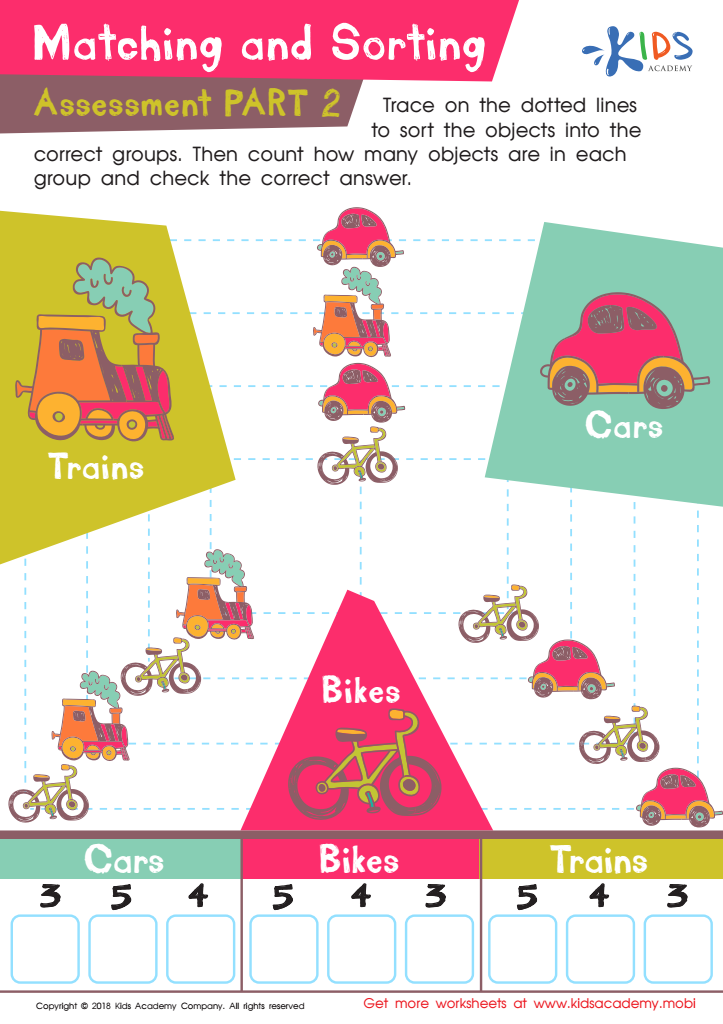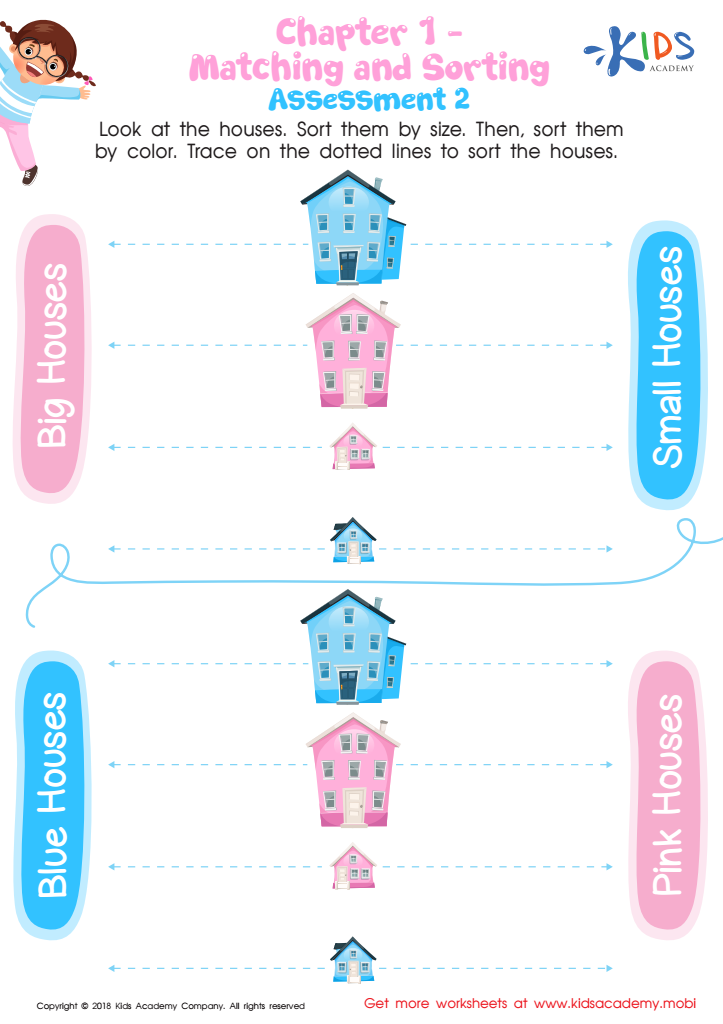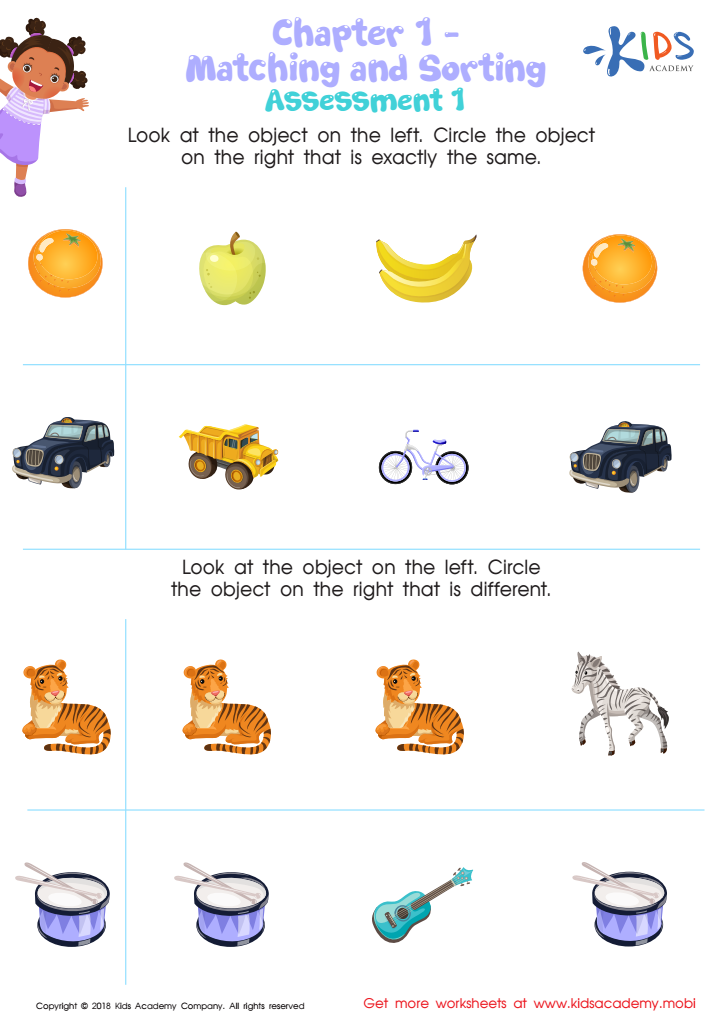Comparing Fractions Sorting Worksheets for Ages 4-5
3 filtered results
-
From - To
Discover our engaging "Comparing Fractions Sorting Worksheets" designed specifically for ages 4-5! These interactive worksheets make learning about fractions fun and enjoyable. Children will develop essential math skills as they sort and compare various fractions using colorful visuals and age-appropriate challenges. By incorporating hands-on activities, these worksheets encourage visual learning and enhance problem-solving abilities. Perfect for home or classroom use, our materials align with early math standards, fostering a strong foundation for future math concepts. Watch your little ones gain confidence and mastery in comparing fractions while having a blast! Explore our collection and inspire a love for math today!


Matching and Sorting for Kindergarten: Assessment 2 Worksheet


Matching and Sorting for Preschool: Assessment 2 Worksheet


Matching and Sorting for Preschool: Assessment 1 Worksheet
Comparing fractions is a fundamental mathematical skill that builds a strong foundation for future learning. For children aged 4-5, engaging them in activities like Comparing Fractions Sorting can significantly enhance their understanding of numbers and quantitative reasoning. At this preschool level, children are beginning to grasp concepts of whole numbers, quantities, and basic mathematics; introducing them to fractions lays the groundwork for more complex mathematical ideas they will encounter later.
Parents and teachers should care about this activity because early exposure to fractions can improve a child’s ability to visualize and conceptualize parts of a whole, fostering critical thinking and problem-solving skills. Sorting activities encourage children to recognize similarities and differences in fractions, promoting logical reasoning. Additionally, this engaging approach nurtures a positive attitude towards math, reducing anxiety and increasing confidence as they grow.
Furthermore, Comparing Fractions Sorting can facilitate discussions about real-world applications of fractions, helping children relate math to everyday experiences, such as sharing food or dividing toys. By encouraging this foundational skill, parents and teachers ensure that children are well-prepared for future educational challenges, enabling them to thrive academically and enjoy the process of learning.
 Assign to My Students
Assign to My Students



















